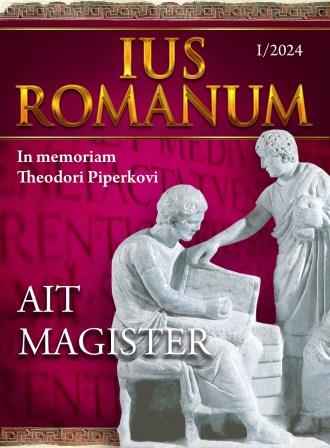„ИЗКУСТВЕНОТО РОДСТВО“ – ЕВРОПЕЙСКО СОЦИАЛНО ИЗОБРЕТЕНИЕ
THE „ARTIFICIAL KINSHIP“, A SOCIAL INVENTION OF EUROPE
Author(s): Jürgen BrandSubject(s): Law, Constitution, Jurisprudence, Constitutional Law, Canon Law / Church Law, Court case, Administrative Law, Roman law
Published by: Софийски университет »Св. Климент Охридски«
Keywords: Western industrial society; urban culture; „artificial kinship“; guilds; associations; contract; oath
Summary/Abstract: One of the special conditions that in retrospect proved to be decisive for the formation of Western industrial society is the emergence of the unique occidental urban culture. The guilds as "communes pré-légales" formed the nucleus for this. Without them, the social type of the free and equal citizen, who is loyal to his community, is inconceivable. As "groupements pré-urbains", they brought the forms and spirit of fraternity by oath to the emerging cities. As "initiatrices de l'autonomie urbaine" they secured political and commercial self-government in the city and territory vis-à-vis the authorities. In the view of Max Weber, the uniqueness of the occidental city is correspondingly linked to the associational character that occurred there, and also Otto Hintze pointed out that the European development into a free community was a singular phenomenon that had not occurred in this form anywhere else. Although there were guilds and similar associations of persons in the East, for example in China, the decisive difference to the European groups lay in the fact that the former remained connected to the idea of family, clan and tribal. While the dynastic rule regularly established a vertically structured organization, the "artificial kinship" resulted in a horizontal formation, which was established as a free "union" between the participants by contract and oath was characterized by certain principles. The constitutive feature was the oath that was linked to the treaty and indissolubly bound the "confederates" („Eidgenossen“) to each other. In examining the organizing principles of these "unifications", four areas must be emphasized: 1. The unconditional obligation to assist each other ("against all and everyone"). 2. The professional, social and (or) pastoral support of its members. 3. The primacy of one's own legal system. 4. The order of the Community by law and procedure. The Swiss "Eid-Genossenschaft" of 1291, which, apart from the free imperial cities of the Holy Roman Empire, was the only horizontal association to assert itself at the state level, and still proudly bears this designation today, is a prominent example of the constitutive and at the same time hardened by the oath an association of this form.
Journal: IUS ROMANUM
- Issue Year: 2024
- Issue No: 1
- Page Range: 18-40
- Page Count: 23
- Language: Bulgarian

